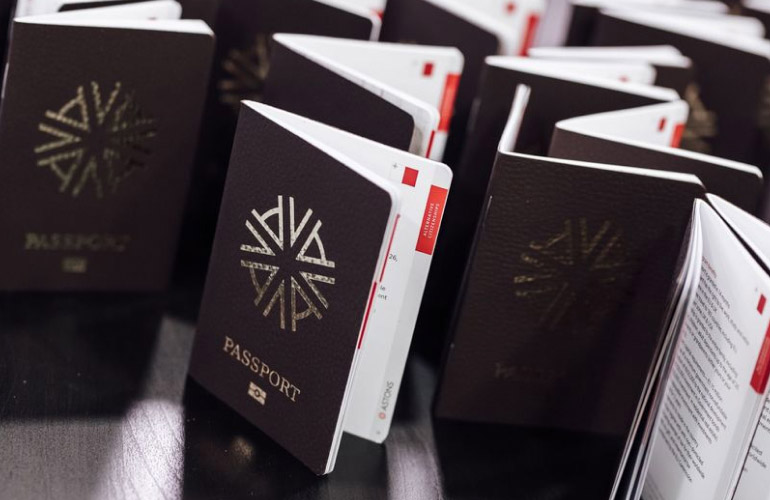Wealth management and financial planning are complex practices requiring intensive forethought and precise calculation – and offshore banking and trusts are effective elements. Leveraging them properly helps increase wealth along with creating an enduring legacy.
Various solutions fall under the umbrella of wealth management, but one that usually goes overlooked is utilizing offshore banks and trusts as asset protection tools.
In addition, one of the best kept secrets of the global elite is genuinely how powerful the combination of investment migration and offshore financial institutions is.
Offshore banking and offshore trusts are, themselves, offer enhanced degrees of freedom, privacy, and security, but when leverage with citizenship by investment or residency by investment programs, their force majeure becomes unparalleled.
Astons advises and assists global sophisticated investors with all aspects of the powerful benefits and advantages of investment migration, and the ability to leverage international banking in unmatched ways is definitely among them.
What is offshore banking?
In short, offshore banks are any bank located outside of a person’s home country. But traditionally speaking, offshore banks are the financial banking institutions purposefully established in foreign low-tax financial centers – such as the Caribbean – that provide comprehensive, international banking services to foreigners.
Before information globalization and the Digital Age, the construct of offshore banks had negative connotations. And the reason was simple: offshore bank accounts were notoriously connected to all sorts of nefarious concepts, such as money laundering, corruption, international criminals, etc.
For the average citizen, the impression was that they were solely used for shady activities by unscrupulous figures and had nothing at all to do with legitimate wealth management.
Today, thanks to a more educated public, along with increased accountability and regulation, that perception has changed.
With the introduction of the Common Reporting Standard (CRS) and the Automatic Exchange of Information (AEOI), the public accepts offshore banking as a stable and legitimate, albeit exotic, method of wealth preservation and management.
The modern hub of offshore banking
Caribbean nations thrive on offshore banking and have a long history of molding the industry and leading it in innovation and accessibility.
The Cayman Islands main income stream derives from its financial services sector – while other countries in the Caribbean also have robust, high-functioning financial hubs that provide top-tier banking solutions to locals and foreigners alike.
St. Kitts & Nevis is a prime example of this, as the dual island Caribbean country has a bustling financial services sector that is making massive strides in attracting some of the world’s most sophisticated high-net-worth individuals (HNWIs).
How do offshore banks operate?
The premise is simple: an offshore bank operates like any other bank worldwide. The differences lie within the scope of services they can offer and the regulatory environment they operate within.
Returning to St. Kitts & Nevis as an example, banking regulations in Nevis highly favor the client’s interests. The level of privacy is nearly unmatched, as the St. Kitts & Nevis government aims to provide an elite degree of security and confidentiality to those who open a bank account in the country.
By incorporating the ethos of privacy that characterizes the nation’s stunning natural scenery into its banking framework, St. Kitts & Nevis has become a hotspot for HNWIs looking to preserve their wealth away from the eyes of creditors and governments legitimately and effortlessly.
Opening an offshore bank account aligns with the standard practice – to some degree. The only differences include meeting the government’s and bank’s compliance and due diligence criteria, as well as satisfying the client standards set by the bank – it must be remembered, as with citizenship by investment and Golden Visas, these are instruments for the elite client.
The adoption of borderless banking technology and the digitalization of most banking operations mean that managing an offshore bank account is now simpler than ever, as everything is a click away.
Making transactions, moving money around, exchanging currency in real time, and submitting claims are now streamlined through digital bank applications.
Sticking with the example of banks in St. Kitts & Nevis, the rapid adoption of all new banking technology is standard procedure, as banks understand that their locality means their elite clients intend to leverage an international banking service, which is why offshore banks also offer bank account options in multiple currencies, such as:
- Canadian Dollar (CAD)
- Euro (EUR)
- UAE Dirham (AED)
- Swiss Franc (CHF)
- Hong Kong Dollar (HKD)
- US Dollar (USD)
- Australian Dollar (AUD)
- British Pound Sterling (GBP)
- Singapore Dollar (SGD)
- Japanese Yen (JPY)
This pan-Caribbean approach to internationalized banking has garnered vast interest from global HNWIs, and some banks in the region, again, notably St. Kitts & Nevis, even offer cryptocurrency investors a suite of services tailored to their needs – important to note however, they do not accept cryptocurrency outright – yet.
What are the benefits of offshore banking?
The reasons offshore banking is such a common practice among the world’s elite differ from one person’s needs, situation, and overarching objectives to the next.
However, there are some mainstream benefits that everyone can take advantage of, such as:
- Greater Privacy: Offshore banks in a robust financial center offer a safe – and private – haven for an investor’s money. They are hidden away from the gaze of foreign creditors and tax-heavy governments (except the US, sadly).
- Better Security: By diversifying the locations of their wealth, investors can better hedge against economic or political instability.
- Excellent Service: The service sector makes up 70% and 68% of St. Lucia’s and St.Kitts & Nevis’ GDPs, respectively, highlighting how important it is for the government to regulate and bolster the services HNWIs receive in the country.
- Regulatory Diversification: Strategically opening accounts in different countries allows an investor to choose the best banking regulations for specific activities. By having various regulatory frameworks, a person can circumvent certain obstacles by operating under the one that benefits them the most.
- Smarter Tax Structuring: Offshore bank accounts in low-tax jurisdictions enables restructuring tax liabilities to alleviate the burden of high taxation. Caribbean countries such as Antigua & Barbuda, Dominica, Grenada, St. Kitts & Nevis, and St. Lucia do not levy global income, wealth, capital gains, or inheritance taxes, and all have excellent financial services centers.
- New Business Opportunities: Offshore bank accounts can help people circumvent local sanctions or move money around during times of financial regulatory crisis. They also provide a different pathway to other markets, allowing people to conduct business more simply.
- Ease Of Use: Thanks to the rapid digitalization of banking services, managing offshore bank accounts is extremely easy, allowing investors to exchange currency in real time, make transfers, request services, and more, all with a few simple clicks.
Offshore bank accounts are an excellent wealth preservation tool, but HNWIs can elevate their asset protection framework by combining their new accounts with offshore trusts.
What are offshore trusts?
Financial trusts may seem ambiguous to some. They are not as common as bank accounts, and the knowledge that the vast majority of the public has about them comes from TV shows and movies, i.e., the trust fund kid.
But in reality, trusts are a supreme asset protection tool used by many to safeguard, privatize, and enhance their wealth.
Trusts are regulated, legal entities that take over ownership of a person’s assets and then manage those assets as the original owner dictates.
A trust is a legally binding fiduciary relationship between parties designed to manage the use of funds deposited into the trust.
A trust relationship is triangular, composed of three parties: the trustor, trustee, and beneficiary.
- The trustor is the original owner of the assets. The trustor dictates the terms and rules of how the trust will manage the assets and who they shall be distributed to, as well as any other important details.
- The trustee can be considered the asset or funds manager, who takes ownership of the assets and manages them per the trustor’s terms. The trustee can be either a person or a legal entity – such as a bank.
- A beneficiary is a person or entity that will benefit from the assets in the trust. A trustee can be a person – like the child of the trustor, or can be an entity – like a charity or company. The beneficiary can even be the trustor themselves – a very common trust structure.
Trusts can be customized to fit each investor’s needs. Each country has its own regulatory framework for trusts, but going back to the Caribbean, countries such as St. Kitts & Nevis have extremely favorable trust laws.
The premise of a trust is that you can’t lose what you don’t own, and by giving ownership of an asset – cash, real estate, a company, or otherwise – to a trust, courts, governments, and creditors can’t target you for that money.
Trusts remove assets from a person’s ownership but allow them to maintain control over those assets, essentially bringing down their overall tax liability and mitigating the risk of losing those assets.
Offshore trusts add another layer of protection, as they do not fall under foreign court jurisdiction. For instance, a trust in St. Kitts and Nevis cannot be touched by a US court.
If, for example, a US court did issue an order to terminate and liquidate a trust in St. Kitts, it would merely be symbolic – the trust would not be compelled to follow that order because the US court has no authority over it.
But that’s simply the tip of the iceberg.
If a creditor chooses to file an action against the trust in St. Kitts & Nevis, it would be equally difficult – suing a trust there isn’t easy.
The creditor would first have to make a $25,000 bond deposit with the government to issue their claim, and the government has the right to raise that amount as it sees fit.
Then, the creditors have just one year to follow up on it and a total of only three years to finalize it, making the act of suing a trust in St. Kitts & Nevis one of the most difficult – and expensive – things a creditor can do.
Hence, establishing an offshore trust is an outstanding asset protection tool, but it comes with other benefits as well.
What are the benefits of offshore trusts?
The most apparent benefits of establishing an offshore trust are:
- Asset Protection: As mentioned, you can’t lose what you legally don’t own. Trusts protect against creditors and governments.
- Tax Structuring: By shifting asset ownership to a trust, an investor can lower their overall tax burden and favorably restructure their tax framework, especially if some of their assets, or their asset’s ROI, are taxed on a higher bracket. This is especially effective in low-tax jurisdictions such as the Caribbean.
- Generational & Enduring Wealth: Trusts are an excellent way to ensure that future generations are financially looked out for and can get the financial care they need to live on, study, and excel.
- Investment Opportunities: As entities on their own, trusts can conduct business, opening up different markets that are closed to investors that hold a certain nationality. This is especially useful when dealing with sanctions or when opportunities are closed to certain countries, such as crypto opportunities that US citizens may not have access to.
By combining offshore banks with offshore trusts, HNWIs leverage an unparalleled robust asset management framework that will not only protect their wealth but help them increase it.
The key is knowing which offshore jurisdiction is the most suitable.
Luckily, the Caribbean is full of outstanding options, and five of them provide an additional tool that the global elite have been capitalizing on for decades: citizenship by investment programs – and they are:
The nexus of offshore wealth management and investment migration
At first glance, one might assume that if they get St. Kitts & Nevis citizenship through investment, that may add a layer of protection to their offshore bank accounts or trusts in the country, and they would be sort of correct.
Suing the trust of a foreigner in St. Kitts & Nevis is extremely hard, but going after one that belongs to a citizen is an entirely different degree of difficulty.
And a citizen is a citizen – it is irrelevant what other citizenships a person may hold. If the HNWI is a citizen of St. Kitts & Nevis and the trust is held under that identity, that is all that matters.
In such a case, political pressure is not a factor – from the government’s perspective, they are now dealing with an act of aggression against one of their own.
The government has options, and one common one they implement is to raise the bond deposit amount. This is not written in stone, but it is more likely to happen with a citizen rather than a foreigner.
And as impressive as that is, that isn’t where offshore wealth management and citizenship by investment genuinely align – it is at their core premise where they harmonize.
Wealth management is all about security and privacy, and so is citizenship by investment.
Offshore banking and trusts give greater financial freedom, while second citizenship provides greater global mobility and geopolitical flexibility, so combining both in one jurisdiction just makes sense.
The construct of individual sovereignty, be it financial or political, is at play here.
Trust Astons
Astons is an industry leader in assisting global HNWIs to acquire and implement a greater degree of individual sovereignty – not only over their wealth, but personally as well.
Global citizenships and residencies add dimensions to an investor’s portfolio and life that simply cannot be achieved any other way.
To learn more about how investment migration permits HNWIs to fully leverage offshore banking and trusts, or to simply learn which citizenship by investment programs and Golden Visas best satisfy your specific needs, wants, and demands, schedule a free and comprehensive consultation with one of our experts.
Frequently Asked Questions
The famous numbered accounts in tax-havens such as Switzerland are a form of offshore banking.
However, those types of accounts are only one type of offshore bank account and should not be confused with the practice as a whole.
It most cases, it is possible to open an offshore bank account online, typically done by an investor’s accountant or personal financial advisor.
The vast majority of international banks are capable of handling virtually any transaction online, including opening an account and transferring funds into it.
Absolutely not – there are no legal methods through which to engage in tax evasion.
Nowadays, even EU-based numbered bank accounts are subject to a 15% withholding tax in certain situations.
Offshore banking, offshore trusts, and investment migration are effective and legal ways to leverage tax abatement and tax avoidance measures – both of which are completely legal – and both of which are completely different from tax evasion.
This is difficult to answer completely, as there are several global locations that could become the next big thing.
But, without a doubt, the United Arab Emirates – UAE – is a top contender for the best offshore banking location in the world.
Dubai is among the most stable and powerful financial markets in the world and is also a Zero Tax jurisdiction.
While anyone can bank in the UAE, residency status plays a significant role in the benefits of doing so, and UAE residency is a solution Astons can provide.



















